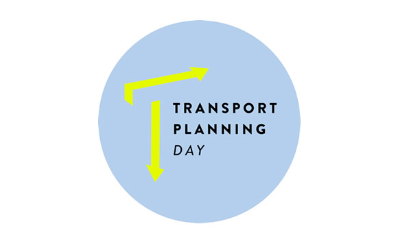“To encourage modal shift and enable an increase in trips in congested cities, government should make the long term funding for major projects conditional on recipient cities committing to introduce a demand management scheme”
This is the strong recommendation of the National Infrastructure Commission in their second National Infrastructure Assessment published last autumn.
Most transport planners agree – demand management schemes such as congestion charges or workplace parking levies consistently poll amongst Transport Planning Society members as key, potentially “magic pill” policies which could help us tackle a wide range of issues – from improving safety to tackling congestion via decarbonisation and reducing air pollution.
However getting these schemes off the ground is notoriously difficult and fraught with challenge, as seen last year when politicians withdrew their support for a congestion charging scheme in Cambridge in the face of strong opposition from the public.
At this TPS lunchtime webinar we’ll be hearing more from the National Infrastructure Commission on where they see the future challenges and opportunities in managing urban transport demand, alongside reflections from those working at the Cambridge coal-face on how these ideas might best be implemented locally.
Speakers:
Neale Coleman. National Infrastructure Commissioner
Neale Coleman worked at the Greater London Authority from 2000 – 2015, leading the Mayor’s work on London’s Olympic bid, the delivery of the Games and their regeneration legacy, and was a Board Member of the Olympic Delivery Authority throughout its life. Neale co-chaired the Olympic Delivery Group, which had responsibility for leading preparations for the Games prior to the creation of the ODA, ensuring the right infrastructure was in place to support the largest sporting event in the world. In addition to the Olympics, Neale led the first Mayor’s approach to housing, regeneration, health and devolution and steered multi agency groups on some of London’s biggest regeneration areas. Neale has also served as Policy Director for the Labour Party.
Jo Field. Founder and Chief Executive, JFG communications
Jo Field is Founder & Chief Executive of JFG Communications, a public affairs consultancy that is helping the transport industry to decarbonise and diversify its workforce.
Lynne Miles. Director of City Access for Greater Cambridge Partnership
Lynne is Director of City Access at the Greater Cambridge Partnership, the organisation set up to deliver the Greater Cambridge City Deal. Her role focuses on reducing congestion to support economic growth. By background she is a spatial economist and local growth policy specialist, and a Chartered Town Planner. Her specialism is at the interface between economic, transport and spatial policy: understanding what drives economic growth and economic disparities.
Kerry Bangle. Major Projects Director, WSP
Kerry is Major Projects Director with WSP, a global engineering, environmental and energy consultancy. She has 25 years’ experience of planning and delivering transport projects and infrastructure in the UK and Australia.
Draft Agenda:
12:00 – 12:05 Welcome on behalf of TPS by Ben Plowden, TPS Chair
12:05 – 12:30 Managing Urban Travel Demand - What do we need to do and how should we do it? Neale Coleman
12:30 – 13:00 Managing Urban Travel Demand – the Cambridgeshire experience.
13:00 – 13:30 Discussion and debate + Q&A (chaired by Ben)












